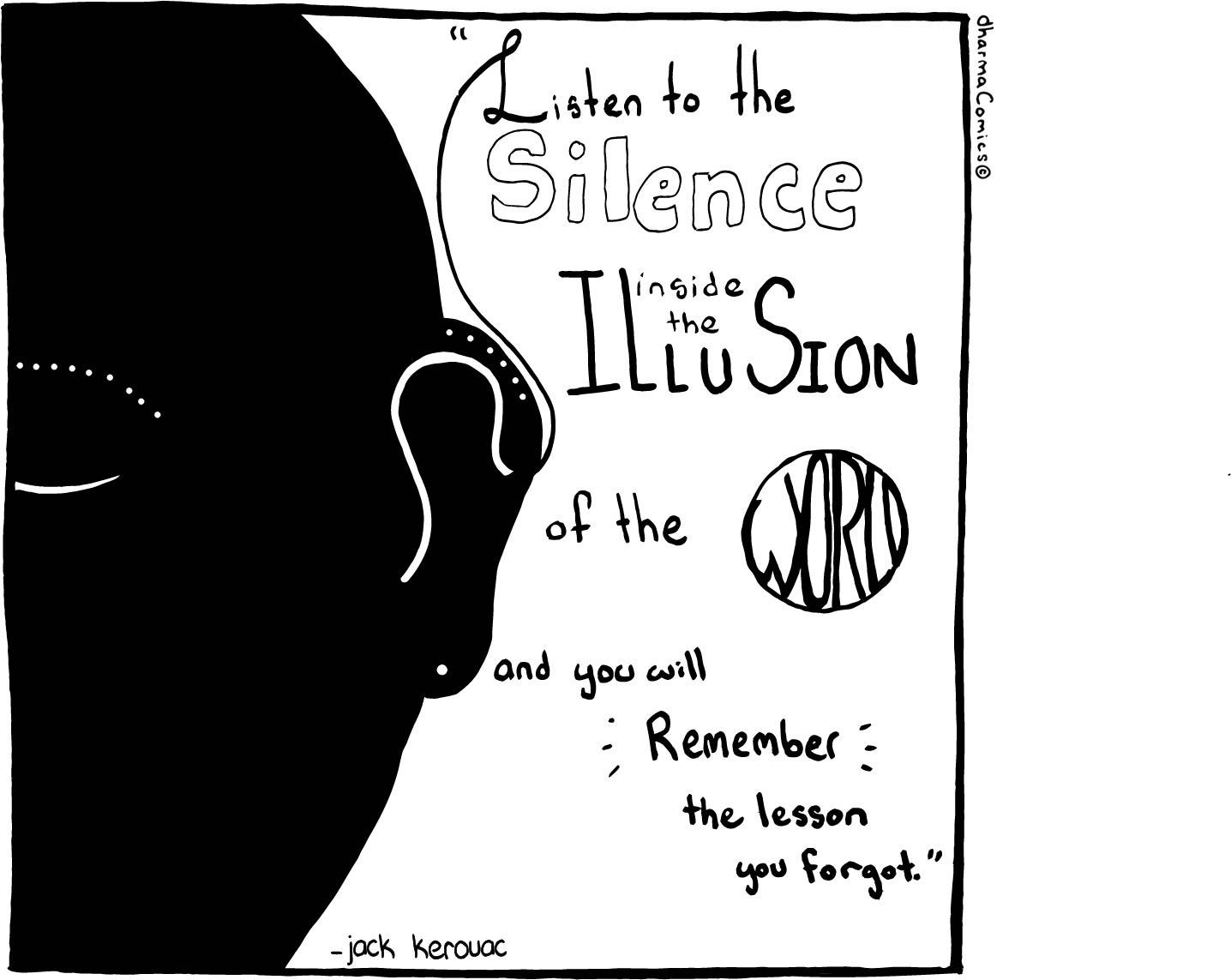The Reality of the Illusory World

IMAGE OF THE WEEK

Well over a hundred years ago the painter Paul Cézanne said, “A time is coming when a carrot, freshly observed, will trigger a revolution.” Cézanne meant that if we could see even a simple everyday object such as a carrot, as it truly is, our experience would be revolutionized. But what does it mean to see an object as it truly is? The key is in the phrase ‘freshly observed,’ which means to see clearly, unobstructed by the concepts that thought superimposes on our experience. In fact, most of us are completely unaware that our experience is filtered through a fine mesh of conceptual thinking that makes it appear very different from how it actually is.
As the Chinese sage Huang Po said, some 1200 years ago, “People neglect the reality of the illusory world.” The illusory world? Now that’s even more radical than Cezanne! It’s one thing to look freshly at a carrot, spade, house or world, but quite another to consider it an illusion. What did he mean?
We often hear phrases in the non-dual teaching such as, ‘The world is an illusion.’ But such phrases may create a rebellion in us, for we know that our experience is very real. So how to reconcile these two positions – one, ‘the illusory world’ and two, the undeniable reality of our experience?
Anything that appears must appear in or on something. For instance, an image appears on a screen; a chair appears in the space of a room; the words of a novel appear on a page; a cloud appears in the sky. What about the mind, body and world? Our only experience of them is what currently appears to us as thoughts, images, feelings, sensations, sights, sounds, textures, tastes and smells. In other words, all we know of a mind, body or world are appearances, and all these are continually appearing and disappearing. We may have a concept of a continuously existing mind, body or world, but we never actually experience such an object.
All experience arises within our self, this transparent emptiness. And the only ‘stuff’ present in our self, out of which all experience can be made, is our self itself. It is our direct, intimate experience that all we know of a mind, body or world is made out of and is identical to the transparency of our own Being.
Just as the screen on which an image appears is usually overlooked due to our exclusive focus on the image itself, so this open, empty, transparent presence of our own Being is usually overlooked due to our exclusive focus on the objects of the mind, body and world – that is, on thoughts, feelings, sensations and perceptions. However, just as it is not possible to see an image without seeing the screen so, although this Presence is usually overlooked, it is never truly unknown.
Love is the common name we give to experience when the ‘other’ is no longer experienced as ‘other;’ when the subject/object relationship collapses. It is to see the appearance of an image but to know it only as screen. It is to attribute the reality of the image to the screen. It is to know everyone and everything as one’s own self.
From an early age Rupert Spira was deeply interested in the nature of Reality. For twenty years he studied the teachings of Ouspensky, Krishnamurti, Rumi, Shankaracharya, Ramana Maharshi, Nisargadatta and Robert Adams, until he met his teacher, Francis Lucille, twelve years ago. Francis introduced Rupert to the teaching of Jean Klein, Parmenides, Wei Wu Wei and Atmananda Krishnamenon and, more importantly, directly indicated to him the true nature of experience. Full article here.
SEED QUESTIONS FOR REFLECTION: What does "the reality of the illusory world" mean to you? Can you share a personal experience where the subject/object relationship collapsed for you? How do you stay aware of the reality of the illusory world without disengaging from it?